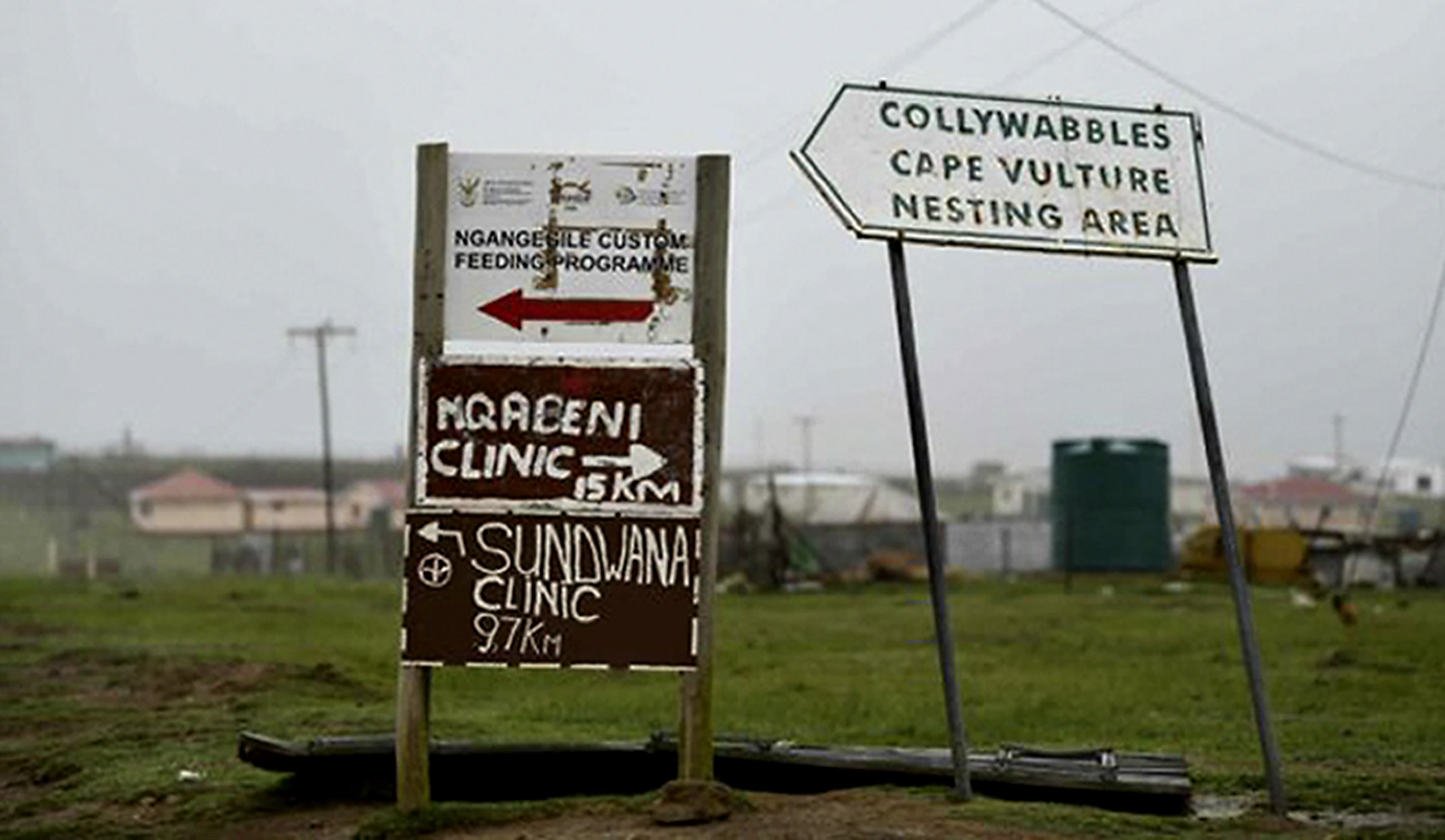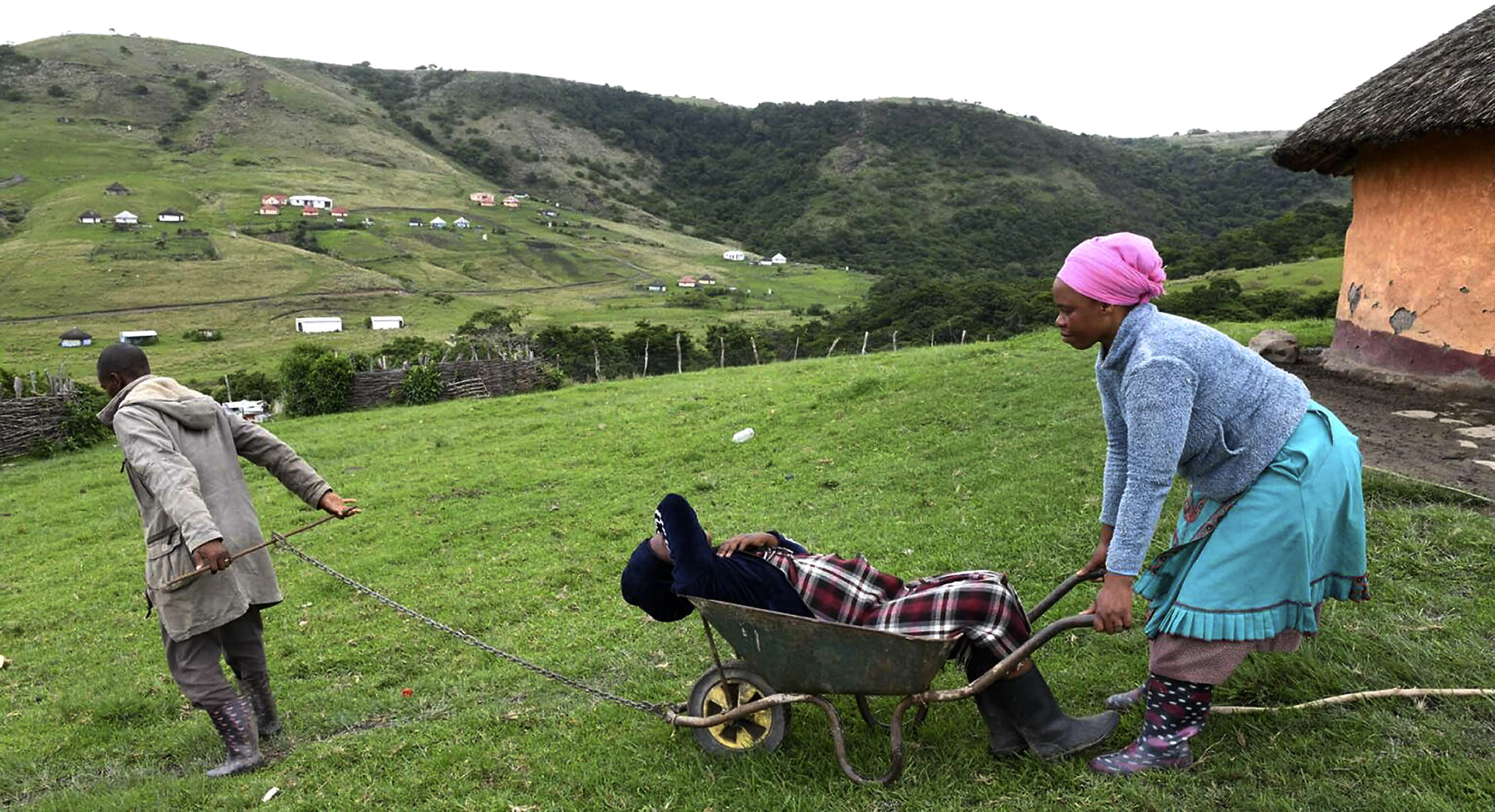COVID-19
Take it to the people: Questions over vaccine readiness in rural areas

The shortcomings in healthcare services in the rural Eastern Cape is well documented. Now, with provinces gearing up for the Covid-19 vaccine roll-out, Spotlight asked health activists and government leaders about the plan for villages in the province.
Some leaders in the Eastern Cape say the temporary suspension of the Oxford/AstraZeneca vaccine roll-out has “come as a blessing in disguise for the province”.
With the much anticipated first batch of the Oxford/AstraZeneca vaccine delivered to South Africa last week, provinces had been gearing up to start vaccinating people as early as next week. But on Sunday evening, health minister Dr Zweli Mkhize announced that the roll-out of this vaccine was being temporarily suspended after preliminary data showed the drug had low efficacy against the variant now dominant in South Africa.
“Having to wait for a week or two weeks for the vaccine could provide salvation for the province because there are gaps in the provincial roll-out plan, such as proper training of staff,” Mxolisi Dimaza, chairperson of the health committee in the Eastern Cape legislature, told Spotlight.
According to Dimaza, councillors and traditional leaders in some districts in the rural areas were not included in the planning process.
“Fortunately, no one will be vaccinated this week – this gives the department time to finalise the roll-out plan. We want councillors, unions, church leaders and traditional leaders to be part and parcel of the coordinating teams.
“These people are crucial in helping to spread the correct information about the vaccine as there was a lot of misinformation,” he said.
“Imagine if the roll-out was going to take place this week as it was planned… that was going to be a disaster. Really, this is a blessing in disguise,” he said.
“The department has an opportunity now to quickly try to sort out some of their weaknesses. At the end of the day, the vaccine will arrive and we expect preparations will have been done correctly.”

Accessing healthcare services is a daily struggle for many in the Eastern Cape’s rural areas. (Photo: Black Star / Spotlight)
Eastern Cape health MEC, Sindiswa Gomba, said during a media briefing last week that the province was ready for the roll-out.
“We are in the process of identifying and training 571 inoculators. At this stage we are also investigating the cost and evaluating the 1,158 sites where vaccinating will be carried out.
“Our committee is checking whether our sites have the capacity and the fridges to keep the specimens, because we’ve never had mass vaccination before.”
The provincial department set itself a target of vaccinating 3.7 million people and aims to roll out all three phases in six to nine months. South Africa’s vaccination programme is divided into three phases, with the first targeting healthcare workers.
In the dark
Despite assurances by provincial health authorities that the vaccine roll-out is going according to plan, secretary of the Xhora Mouth community health committee, Phumzile Msaro, remains sceptical. Msaro’s committee has been campaigning for ambulance services in the Xhora Mouth area.
Msaro is worried about what he says is a lack of consultation with rural communities such as his.
“We only hear on the news that the vaccine is coming to South Africa, but we have never been consulted. There are no explanations.”
Msaro also told Spotlight he was concerned that rural communities would be used as “guinea pigs” as they had not been informed properly.
“It is well known that residents of urban areas are ahead of those in the rural areas when it comes to developmental issues. There is a need for a comprehensive awareness campaign to inform and educate rural communities about the importance of getting vaccinated against Covid-19,” Msaro said.
“I foresee some people getting discouraged due to the long distances [they have to travel] to reach health facilities to get the vaccine shot.
“Think about a person who has to walk two to three hours for a shot. If those people think it’s not that important, or have some misperceptions or misinformation about the vaccine, this is going to be extremely challenging,” he said.
“The department of health needs to come up with a clear plan for local chiefs and ward councillors, as they have clout with their subjects.
“This lack of informed planning, compounded with the way officials disseminate information in our villages, will give rise to opportunities for individuals to jump the queue, and that alone would be a cause for corruption,” he said.
Reliable transport
A community health committee member from the Amathole district, Xolisile Sam, said he does “not know anything about this vaccine”.
“The information I have is from the media. Other than that, I don’t know how it works and who will be responsible for its distribution.
“The major challenge will be that of long distances between communities and health facilities.”
Sam says it is vital that the government provides reliable transport for people to get to the vaccination points.
Another clinic committee member from Joe Gqabi district, Mzoxolo Bhoyana, told Spotlight they had not seen any healthcare workers conducting public information campaigns about the vaccine.
Bhoyana expressed concern that if not done properly, the government may “repeat the mistakes of the ARV roll-outs” when people also had limited information due to stigma and misinformation, and take-up was slow.
“It’s rare to find community healthcare workers in rural areas educating people about Covid-19 compared to what they do in urban areas,” he said. These campaigns, Bhoyana added, are often concentrated in urban areas where logistics are available.
“There are villagers who have never used an ambulance or even have mobile clinics in their areas. Hence it will be very interesting to know how government will approach the distribution of vaccines in rural areas in light of these challenges.”
Elements of the plan
Briefing Parliament’s portfolio committee on health in January, the acting superintendent-general for the Eastern Cape health department, Dr Sibongile Zungu, said the province would receive the first batch of vaccine from the national central distribution centre when it became available.
Zungu told MPs that in the first phase, they estimated that 200,000 healthcare workers and support staff would be prioritised.
The second phase of the mass roll-out would target about 1.5 million people, including essential workers, people in congregate settings, people over 60 and those older than 18 with co-morbidities.
In the third phase, the province intends to target about two million people older than 18.
“Because of the rural nature of our province,” Zungu told MPs, “and due to challenges we have in terms of the capacity of the health system, we would use schools and community halls as vaccination sites.
“The province has 2,873 communities that have to travel more than 5km to the nearest healthcare facility. Amathole and OR Tambo health districts are the worst affected, hence we want to utilise schools and community halls to avert problems that may arise,” Zungu said.
“The department of education’s database reveals that there is either a primary school or a high school in a community. But we will wait for the national department to guide us about the requirements to ensure safety of [the] roll-out in temporary sites such as schools and community halls.”
In January, Eastern Cape premier Oscar Mabuyane appointed a vaccine coordinating committee led by Dr Thobile Mbengashe and assisted by Prof Kholeka Mlisana, Prof Welile Shasha, Dr Sibongile Zungu, Dr Thuthula Balfour, Siyabulela Tsengiwe and Dr Bruce Janssens.
“The vaccination programme will be conducted over a six to nine-month period, depending on the delivery schedules of the vaccines.
“Similar to the IEC (Independent Election Commission) election programme, the department of education will make schools accessible while churches and community centres will also be used as vaccination sites,” Mabuyane said.
“Temporary vaccination centres will also be established at key points such as municipal offices, malls, taxi ranks, pharmacies, private hospitals and NGOs and clinics to make it more accessible.
“Mobile services will also be used. The vaccine roll-out will be led nationally in close coordination with the provincial and private health care sector,” the premier said.
Dr Zungu told members of parliament that the committee will be responsible for the development and implementation of a provincial plan based on the national implementation plan, procurement of needles, syringes, swabs, medical waste disposal as well as liaising with national government on the availability of vaccines and monitoring the coverage at the command centre.
Denosa in the dark on finer details
The provincial secretary of the Democratic Nursing Organisation of South Africa (DENOSA), Khaya Sodidi, told Spotlight their nurses were also in the dark about the Eastern Cape’s vaccine roll-out plan.
“We have not yet seen the strategy on how the roll-out will be carried out. However, the department of health engaged with us in the last two weeks regarding their ambitious plan, but when it comes to the finer details, we are still in the dark.
“The only thing the department told us is that healthcare workers will be first in line for the jab,” Sodidi said.
“It concerns us that our members are first in line, but they still don’t know the pros and cons of these drugs and some workers are refusing to be vaccinated,” Sodidi said.
“We heard that the province would need 571 inoculators for the roll-out, but where will those workers come from?
“Are they going to employ new staff or will they train existing staff, because our hospitals and clinics are already buckling under the pressure.”
Unique challenges in rural areas

Wheelbarrows are an important mode of transport for the sick in Xhora Mouth, Transkei. (Photo: Black Star / Spotlight)
Director of the Rural Healthcare Advocacy Project (RHAP), Russell Rensburg, told Spotlight that, at this stage, the government’s plan does not consider the unique challenges rural communities are facing.
“People are expected to register for the vaccine slots online, meaning officials presume people have internet accessibility.
“The only reference to the rolling out programme in rural areas is the confirmation that local pharmacists and doctors will be contracted to do the job. Hopefully, as the programme goes out in phases, our healthcare workers will have an opportunity to overcome these challenges,” he said.
“Rural communities, particularly those in the former homelands, experience challenges of accessing their healthcare services. This has been proven by existing health programmes, particularly involving HIV and TB treatment where uptake has been declining.
“The vaccine roll-out presents an opportunity to reconnect communities with the health system,” he said.
“Rural provinces should invest in training community healthcare workers on how vaccines work so [everyone can understand] why it’s important that as many people as possible agree to be vaccinated,” said Rensburg.
“Community health worker teams should prioritise training traditional leaders because they are close to the people. It is imperative to maintain a good working relationship with traditional leaders by hosting community imbizos where vaccination days and venues are explained to the people.
“It is also important for teams of vaccinators to be sent deep into rural villages where transport and accessibility is a challenge, rather than expecting people to come to the healthcare facilities.” DM/MC
This article is published by Spotlight – health journalism in the public interest. Sign up for our newsletter.
Information pertaining to Covid-19, vaccines, how to control the spread of the virus and potential treatments is ever-changing. Under the South African Disaster Management Act Regulation 11(5)(c), it is prohibited to publish information through any medium with the intention to deceive people on government measures to address Covid-19. We are, therefore, disabling the comment section on this article in order to protect both the commenting member and ourselves from potential liability. Should you have additional information we should know about, please email [email protected]
"Information pertaining to Covid-19, vaccines, how to control the spread of the virus and potential treatments is ever-changing. Under the South African Disaster Management Act Regulation 11(5)(c) it is prohibited to publish information through any medium with the intention to deceive people on government measures to address COVID-19. We are therefore disabling the comment section on this article in order to protect both the commenting member and ourselves from potential liability. Should you have additional information that you think we should know, please email [email protected]"





 Become an Insider
Become an Insider